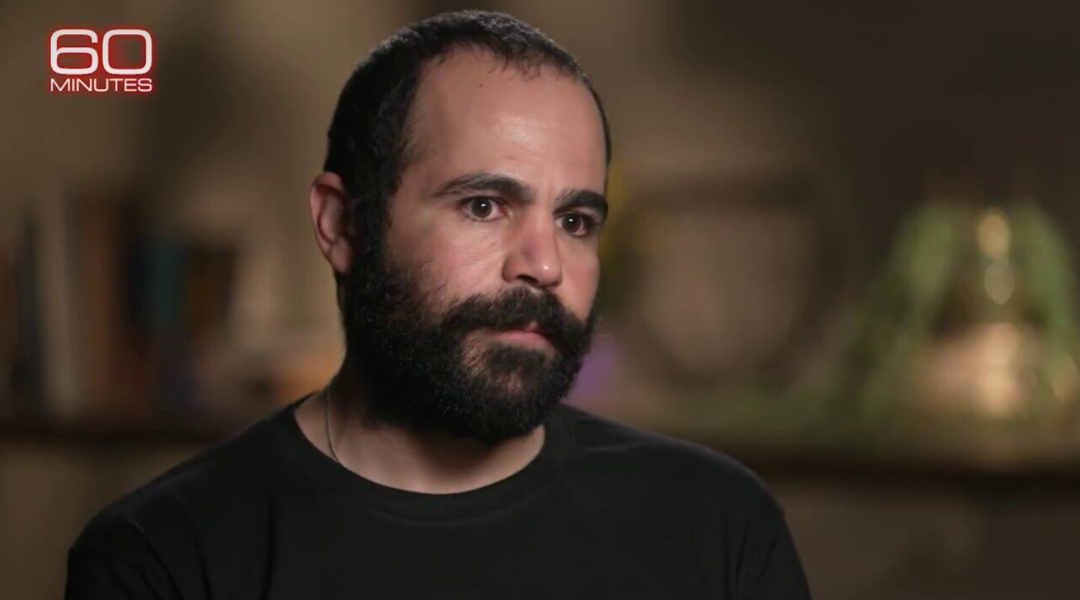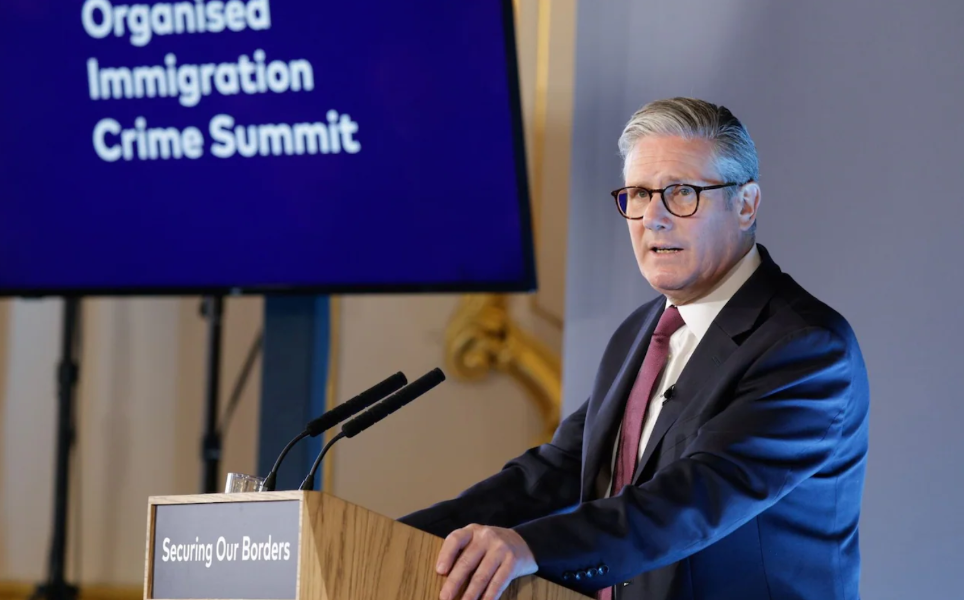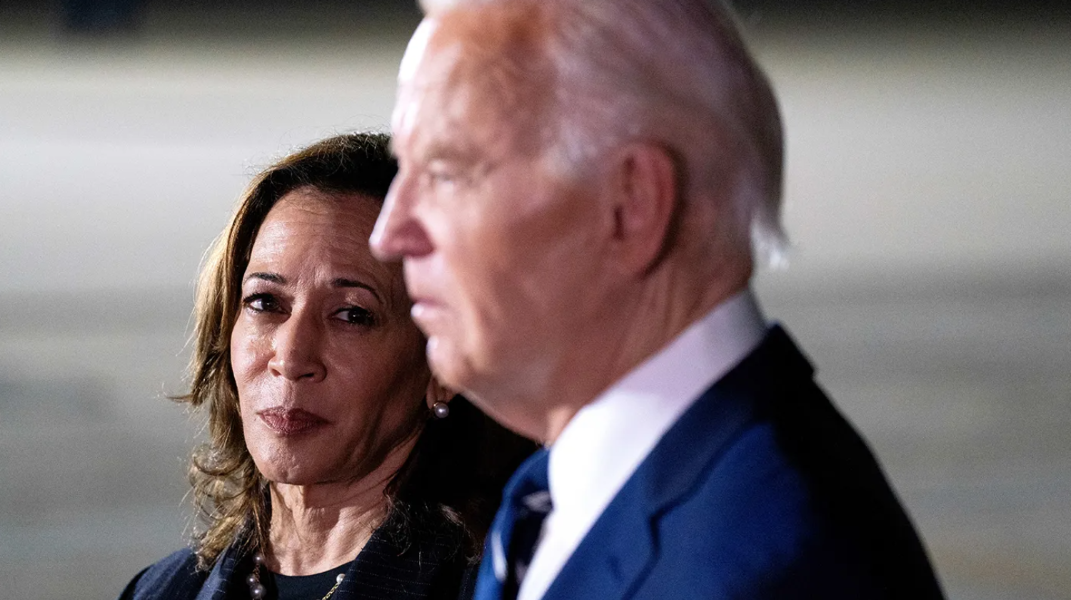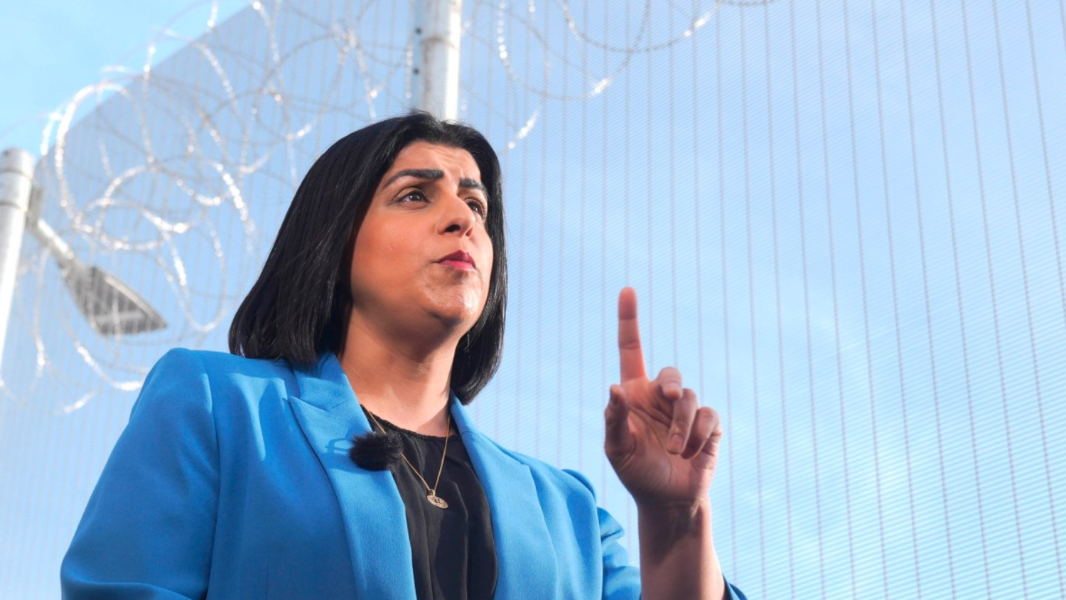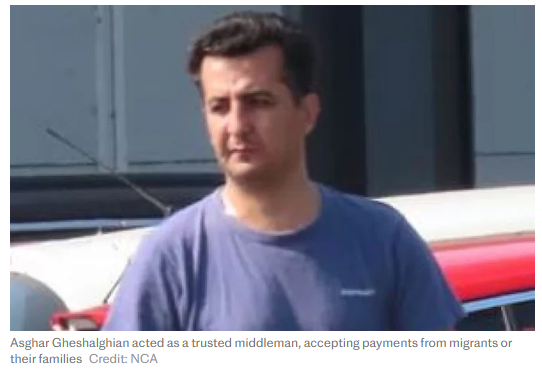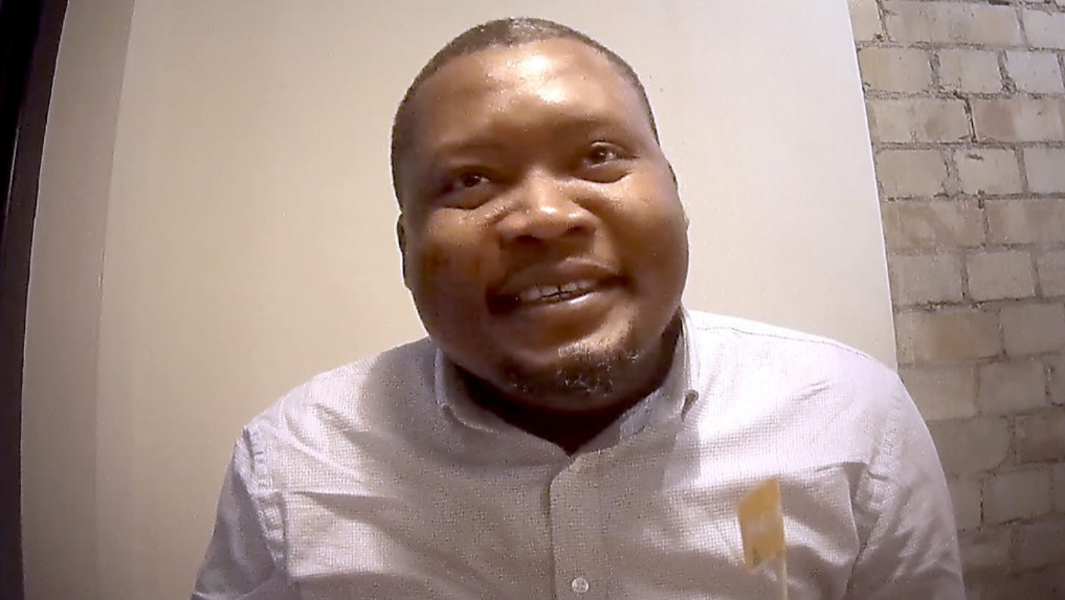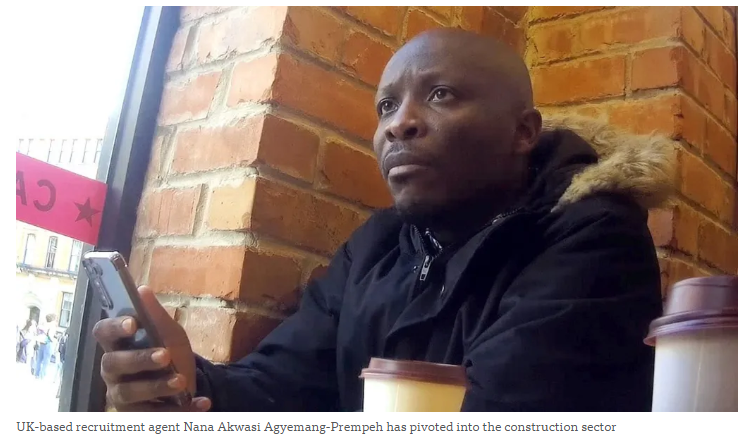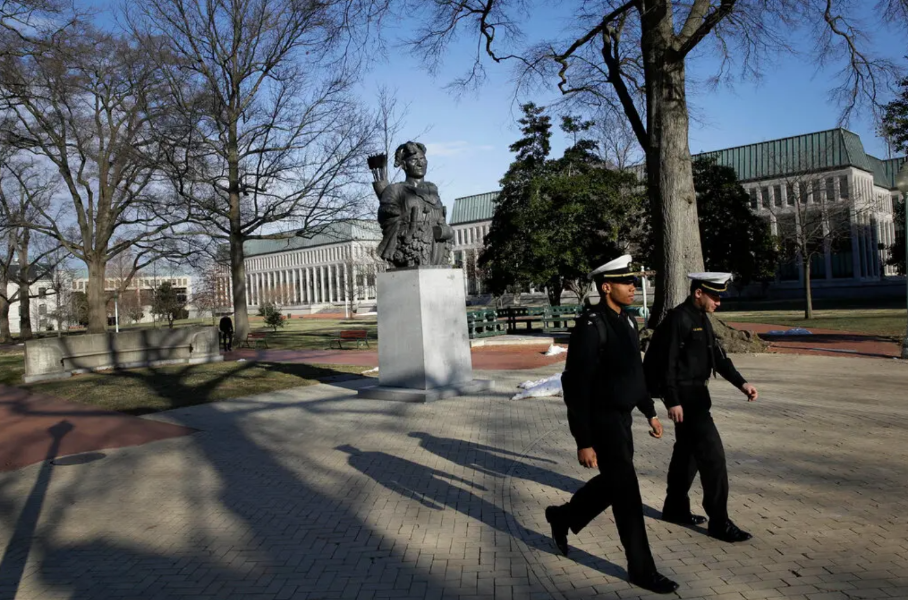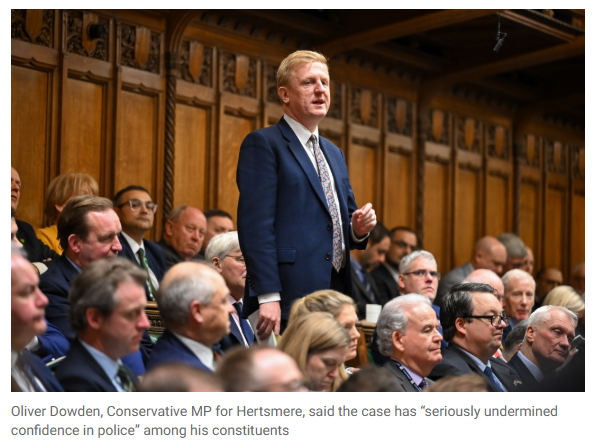-
Posts
10,758 -
Joined
-
Last visited
Content Type
Events
Forums
Downloads
Quizzes
Gallery
Blogs
Everything posted by Social Media
-
GCHQ Intern Admits to Breaching National Security by Taking Top Secret Data Home A former GCHQ intern, Hasaan Arshad, has pleaded guilty to committing an unauthorised act that put national security at risk after he took top-secret data home. The 25-year-old from Rochdale, Greater Manchester, admitted the offence under the Computer Misuse Act on what was set to be the first day of his trial at the Old Bailey. Arshad's actions took place between August and September 2022. On August 24, he allegedly took his work mobile phone into a top-secret area of GCHQ, where he connected it to a secure workstation. He then transferred sensitive data onto the device before taking it home and copying it onto a hard drive connected to his personal computer. He was arrested on September 22, 2022, and a search of his home followed. On Monday, Arshad pleaded guilty to a charge under Section 3ZA of the Computer Misuse Act 1990, which relates to "unauthorised acts causing, or creating risk of, serious damage." The charge stated that he "did an unauthorised act in relation to a computer and at the time of doing the act knew that it was unauthorised; and the act caused, or created a significant risk of a material kind, this being damage to the national security of a country; and he intended by doing the act to cause serious damage of a material kind or was reckless as to whether such damage was caused." Arshad’s lawyer, Nina Grahame KC, informed the court that he admitted the offence on the "basis of recklessness." The court also heard that he had previously admitted to two charges related to making an indecent photograph of a child, with images found between September 7 and 23, 2022. Mrs Justice McGowan has adjourned sentencing for all charges until June 13. She had previously ruled that parts of the case would be heard behind closed doors, excluding the press and public. The Government classifies "top secret" information as the most sensitive data, where compromise could lead to widespread loss of life or threaten national security, the economy, or international relations, according to Ministry of Justice security guidelines. Arshad’s case raises serious concerns about cybersecurity and the safeguarding of the UK’s most sensitive intelligence. Based on a report by Daily Telegraph 2025-04-02
-
Helen Mirren Criticizes James Bond Franchise for Its Deep-Rooted Sexism but Opposes a Female 007 Helen Mirren has taken aim at the James Bond franchise, calling it out for its “profound sexism,” while also expressing her belief that the iconic spy should remain male. The Academy Award-winning actress, 79, shared her thoughts on the subject in an interview discussing her new series MobLand. The project has her working alongside Pierce Brosnan, 71, who famously portrayed Bond in four films between 1995 and 2002. “I have to say I was never a great ward [of Bond],” Mirren admitted in a conversation with The Standard. However, she made it clear that her issue was not with Brosnan himself, whom she described as a personal favorite. “I’m a huge fan of Pierce Brosnan, I mean massive fan. I mean, oh my God.” She praised both Brosnan and Daniel Craig, saying, “Obviously, he’s gorgeous and everything, and I think he’s fabulous in MobLand, but he also happens to be one of the nicest people you’ll ever have the pleasure to work with. And indeed Daniel Craig, who I’ve met and know a little bit. Again, a very lovely gracious person.” Despite her admiration for the actors, Mirren has long been uncomfortable with the franchise’s portrayal of women. “The whole series of James Bond, it was not my thing,” she explained. “It really wasn’t. I never liked James Bond. I never liked the way women were in James Bond.” While discussions about modernizing the franchise have included the possibility of a female 007, Mirren remains firmly against the idea. “The whole concept of James Bond is drenched and born out of profound sexism,” she stated. Instead of altering Bond’s gender, she suggested focusing on the real-life stories of female spies. “Women have always been a major and incredibly important part of the Secret Service, they always have been. And very brave,” Mirren emphasized. “If you hear about what women did in the French Resistance, they’re amazingly, unbelievably courageous. So I would tell real stories about extraordinary women who’ve worked in that world.” The debate over a female Bond has been reignited following a recent development in the franchise’s ownership. After decades of creative control, Bond producers Barbara Broccoli and Michael G. Wilson have transferred the character’s future direction to Amazon MGM Studios as part of a $1 billion deal. While Amazon acquired MGM in 2022 for $8.5 billion, Broccoli and Wilson had retained final decision-making power until this new agreement. Shortly after the transition, Amazon MGM Studios chief Jennifer Salke resigned from her position. According to industry insiders, Salke had clashed with Broccoli over the direction of Bond, with one significant point of contention being the idea of making 007 female—an idea Broccoli reportedly rejected outright. She had previously stated, “I believe we should be creating new characters for women—strong female characters,” while maintaining that Bond himself “is male.” The idea of a female Bond has long been divisive. Gemma Arterton, who played Strawberry Fields in 2008’s Quantum of Solace, dismissed the notion, saying, “Isn’t a female James Bond like Mary Poppins being played by a man? They talk about it, but I think people would find it too outrageous. Sometimes you just have to respect the tradition.” Daniel Craig, the most recent actor to play Bond, has also voiced his opposition. “Why should a woman play James Bond when there should be a part just as good as James Bond, but for a woman?” he told Radio Times in 2021. As speculation continues over who will succeed Craig, who ended his tenure as Bond with 2021’s No Time to Die, the debate over the character’s future remains as heated as ever. However, if Mirren and others have their way, the legendary spy will remain as Ian Fleming originally envisioned—while female spies get their own place in cinematic history. Based on a report by NYP 2025-04-02
-
Japan Unveils Evacuation Plan for 120,000 Okinawa Residents Amid Rising Tensions Japan has announced a large-scale evacuation plan to relocate approximately 120,000 people from the southern islets near Taiwan in the event of a crisis. The plan, revealed on Thursday, outlines the transport of residents and visitors from the Sakishima Islands in Okinawa Prefecture to safer regions within six days. The evacuation would involve the use of ships and airplanes to relocate around 110,000 local residents and 10,000 visitors to designated locations across eight southwestern and western prefectures. Officials emphasized that while the plan is not tied to any specific scenario, its necessity arises due to the proximity of these islands to Taiwan, which China considers its own territory. Yonaguni Island, for example, is only about 100 kilometers from Taiwan, placing it in a potential flashpoint zone. With tensions between China and Taiwan escalating, Japan is taking precautionary measures to ensure the safety of its citizens. The government has announced plans to conduct field drills in Okinawa in fiscal 2026, starting in April next year, to test and refine evacuation procedures. The strategy includes the initial transport of evacuees via private ferries and airplanes to key airports and ports on Kyushu, Japan’s southwestern main island. From there, they would continue to designated evacuation sites across the country. At a press conference on Thursday, Japanese Chief Cabinet Secretary Yoshimasa Hayashi stated that the plan is designed to strengthen preparedness for a potential armed conflict. “The plan is intended to deepen discussions on the evacuation of residents under the assumption of a situation where armed attacks are predicted,” he explained. He also highlighted improvements in logistical readiness, noting that the plan specifies transportation methods, accommodations, and food supply strategies to enhance effectiveness. Japan’s updated National Security Strategy, revised in 2022, underscores the government’s commitment to ensuring a swift evacuation process in the event of hostilities. The guidelines stress the importance of evacuating residents from the southwestern region before an armed attack occurs. The proximity of Japan’s southwestern territories to Taiwan makes them particularly vulnerable. While the uninhabited Senkaku Islands—administered by Tokyo but claimed by Beijing—are not directly involved in the evacuation plan, their strategic location further complicates regional security. Since China and Taiwan have been separately governed since their split following the 1949 civil war, tensions in the region continue to create potential security risks for Japan, a key U.S. ally in Asia. The potential for a conflict over Taiwan has been a growing concern among policymakers worldwide. A military confrontation between China and Taiwan could have serious implications, drawing in the United States and its allies, including Japan. By proactively planning for large-scale evacuations, Japan is signaling its commitment to protecting its citizens while preparing for any worst-case scenarios that may arise in the increasingly volatile region. Based on a report by Mainichi.Jp 2025-04-02
-
After more than 15 months in captivity and the heartbreaking task of burying his wife and two young children, freed Israeli hostage Yarden Bibas made a public plea to Israeli Prime Minister Benjamin Netanyahu. His message was clear—end the fighting in Gaza to secure the return of the remaining hostages taken on October 7, 2023. Despite his appeal, the ceasefire with Hamas ended this month, and Israeli airstrikes on Gaza resumed. Pure evil! Released hostage Keith Siegal, speaking on @60Minutes, describes how he witnessed "literal torture" and "sexual assault" of female hostages, which he was forced to watch by his Hamas captors! "You don't know when it's gonna happen. And when it happens, you're afraid for your life," Bibas said. "The whole earth would move like an earthquake, but underground." Bibas, his wife Shiri, and their two red-haired sons—four-year-old Ariel and nine-month-old Kfir—were among the victims of the October 7 Hamas attack on Israel, an assault that resulted in the deaths of approximately 1,200 civilians and soldiers, with 251 individuals abducted. During his captivity, Bibas was forced to appear on camera and told that his wife and sons had perished in an Israeli airstrike. However, Israeli officials later stated that forensic evidence indicated his children were murdered by their captors. "They were all murdered in cold blood, bare hands," Bibas recounted. "They [Hamas] used to tell me, 'Oh, doesn't matter. You'll get a new wife. Get new kids. Better wife. Better kids.'" Shortly after his release in January, Hamas returned the bodies of his wife and children as part of a ceasefire agreement. Since then, Bibas has become an outspoken advocate for the remaining hostages, writing to Netanyahu in a desperate bid to stop the violence. He does not believe that further fighting will lead to the release of the hostages. Instead, he now hopes to reach the ears of former U.S. President Donald Trump. "I know he can help," Bibas said. "I'm here because of Trump. I'm here only because of him. I think he's the only one who can stop this war again." He urged Trump to mediate between Netanyahu and Hamas to negotiate another ceasefire. Bibas also fears for the safety of his best friend, David Cunio, and Cunio’s brother, Ariel. Cunio was kidnapped alongside his wife, Sharon, and their children, who were later freed in the first ceasefire of November 2023. However, David and Ariel remain in captivity. "Probably the hardest thing: I have to move [on] with my life, and David is not with me," Bibas said. "I lost my wife and kids. Sharon must not lose her husband." Bibas is not the only freed hostage pushing for a ceasefire. Keith Siegel, an Israeli-American released in January, is also advocating for the return of the remaining hostages. He and his wife, Aviva, were kidnapped from their home in Kibbutz Kfar Aza, near the Gaza border, and taken into tunnels. "We were gasping for our breath," Keith Siegel recalled. Aviva remained with him for 51 days before being released during a temporary ceasefire in 2023. While in captivity, they witnessed unspeakable abuse. "I witnessed a young woman who was being tortured by the terrorists. I mean literal, you know, torture, not just in the figurative sense," Siegel said. He also described how female hostages were sexually assaulted while other captives were forced to watch. Conditions deteriorated even further after the early ceasefire collapsed. "The terrorists became very mean, and very cruel, and violent," Siegel said. He was beaten, starved, and tormented by his captors, who would eat in front of him while depriving him of food. Once a month, he was given half a bucket of cold water to wash himself. He described how his spirit was crushed. "I felt that I was completely dependent on the terrorists, that my life relied on them—whether they were gonna give me food, bring me water, protect me from the mobs that would lynch me," he said. "I was left alone several times, and I was very, very scared that maybe they won’t come back, and I'll be left there. And what do I do then?" Now home, Aviva Siegel remains tormented by the plight of two neighbors, 27-year-old twins Gali and Zivi Berman, who are still in captivity. "There needs to be a deal that will bring them back and finish with this whole thing," she said. An estimated 24 hostages are still believed to be alive in Gaza, and for those who have returned, their fight is far from over. As they continue to relive their trauma, their voices grow louder in their plea for a resolution that will bring an end to the suffering of those left behind. Based on a report by CBS 2025-04-02
-
Starmer Defends Human Rights Lawyers Amid Deportation Controversy Prime Minister Sir Keir Starmer has defended human rights lawyers who have blocked deportations of foreign criminals and illegal migrants, stating that they are simply fulfilling their professional duty. Speaking at the first global summit on organised immigration crime, Starmer emphasized that the legal system depends on lawyers representing their clients, regardless of personal beliefs. "No, lawyers are employed to represent people, and they represent them, whether they agree with them or don’t agree with them," he said when asked whether his past as a human rights barrister made him “part of the problem.” He insisted that the legal system would break down without such principles. Home Secretary Yvette Cooper confirmed that Labour is reviewing the use of human rights laws, particularly Article 8 of the European Convention on Human Rights (ECHR), which allows migrants to claim deportation would violate their right to family life. However, she reassured that the government would not withdraw from the ECHR, warning that such a move could undermine international cooperation against people smuggling gangs. "There is a review under way at the moment that is looking at the application of Article 8 in some particular cases where we have disagreed with the conclusions that were reached in the courts," Cooper stated. She stressed that remaining in the ECHR has helped the UK secure agreements with France and Germany to combat illegal migration. Germany plans to introduce stricter penalties for those who help migrants reach the UK, while France will pass laws enabling officers to stop small boats in shallow waters. The discussion follows several high-profile cases where illegal migrants and convicted foreign criminals have used human rights laws to avoid deportation. These include an Albanian criminal who remained in the UK after claiming his son had an aversion to foreign chicken nuggets and a Pakistani paedophile who was jailed for child sex offences but was allowed to stay because his deportation was deemed “unduly harsh” on his children. Legal experts believe that if the government wants to curb legal challenges to deportations, it will need to introduce legislation reaffirming the primacy of UK law over the ECHR rather than simply issuing new guidance. The Prime Minister is expected to outline proposals in an immigration White Paper ahead of the local elections in May. At the summit, Starmer also signaled openness to new approaches for handling failed asylum seekers, including sending them to third countries such as the western Balkans. He confirmed that the government is exploring an EU proposal for "return hubs," where migrants would be sent after exhausting all avenues of appeal. "The principal approach that we take is that we will look at anything that works. Obviously that’s got to be consistent with international law, and it’s got to be cost-effective," Starmer said. Under the plan, Britain would pay partner countries to accept failed asylum seekers. The Netherlands is currently negotiating with Uganda about setting up a return hub, a model that has been endorsed by both the European Union and the United Nations International Organisation for Migration. The hubs would allow the UK to deport failed asylum seekers from countries considered unsafe for direct return, such as Afghanistan, Iran, and Somalia. Those from safe countries, including Vietnam, Pakistan, and India, could be held temporarily while arrangements were made for their deportation. Starmer and Cooper also expressed willingness to consider an Italian proposal for offshore asylum processing camps in Albania, where claims would be assessed before migrants were either accepted into the UK or rejected. Italian Prime Minister Giorgia Meloni defended her government’s model, stating in a recorded message at the summit that "Governments should not be afraid to imagine and build innovative solutions." She claimed that initial skepticism over her offshore processing approach had turned into broad support, leading the EU to propose return hubs in third countries. "This means that we were right and that the courage to lead the way has been rewarded," she added. Starmer has abandoned the previous Conservative government's plan to send illegal migrants and asylum seekers to Rwanda for processing and resettlement. He argued that Labour inherited a disorganized border enforcement system that had allowed people smugglers to exploit weaknesses and bring thousands of illegal migrants into the UK. He criticized the previous administration for poor coordination between policing, border forces, and intelligence agencies, which he claimed made Britain "a soft touch" for illegal migration. "Smugglers took this as an open invitation," he said, vowing to strengthen enforcement and explore new solutions to curb illegal crossings. Based on a report by The Telegraph 2025-04-02
-
Democratic Party officials and White House staffers were well aware of former President Joe Biden’s frailties long before he ultimately decided to step away from his reelection campaign in the summer of 2024. Exclusive excerpts from the upcoming book Fight: Inside the Wildest Battle for the White House by The Hill senior political correspondent Amie Parnes and NBC News senior national politics reporter Jonathan Allen provide insight into the extensive efforts taken to manage concerns about Biden’s age and the contingency planning in place should he withdraw or even pass away in office. “It shows what we had to do to prepare with the unique circumstances we had, which was an eighty-plus-year-old president who was running,” an involved party official stated, according to Parnes and Allen. Biden’s age was a looming issue from the moment he launched his campaign in April 2023. Despite public assurances from Democratic leaders that he was fully capable of winning and serving another term, internal worries persisted well before his disastrous debate performance in June 2024 against then-candidate Donald Trump. While officials dismissed Republican allegations about Biden’s declining cognitive abilities, some privately feared they were relying too heavily on a president who “at best, had long since lost his fastball,” as the authors noted. One of the earliest signs of concern came from Rep. Eric Swalwell (D-Calif.), a former 2020 presidential candidate. Swalwell reportedly became alarmed after a conversation with Biden at the White House picnic in June 2023. According to the book, Biden did not immediately recognize Swalwell, prompting the congressman to remind the president of personal details to jog his memory. As Biden’s campaign continued, further signs of his struggles surfaced. During the G7 summit in Italy, he arrived exhausted, and in many sessions, his aides observed his fatigue. To mask the visible effects of aging, a makeup artist was enlisted to work on Biden’s appearance before public events and even Zoom calls with staff. However, while he rarely missed these cosmetic preparations, he sometimes canceled briefings that followed. In the aftermath of his debate against Trump, additional measures were taken to assist Biden. At a fundraiser at New Jersey Gov. Phil Murphy’s residence, he required fluorescent tape to guide him through the venue and used a teleprompter even when addressing a small group. Despite these efforts, he frequently lost his train of thought during his remarks. Yet, those closest to Biden remained unwavering in their support for his reelection bid. White House counselor Steve Ricchetti and longtime Biden strategist Mike Donilon were described as “one hundred percent in,” while First Lady Jill Biden was reportedly “a thousand percent” behind the decision. “At the end of the day, I don’t think anyone in that inner circle was presenting the president any contrary advice that this thing is not going to be easy or maybe this is not the best thing for the Democratic Party,” an insider revealed. Some, however, viewed Biden’s decision to run again as a critical mistake. One close friend of both Biden and former President Barack Obama described his reelection bid as the “original sin” of the 2024 election, blaming his inner circle and family for not steering him away from another run. With Biden’s vulnerabilities evident, quiet preparations for a possible successor began behind the scenes as early as 2023. A staffer for Vice President Kamala Harris kept a spreadsheet tracking Republican federal judges that Trump had not yet appointed. The purpose was to ensure that, in the event Harris had to assume the presidency unexpectedly, she could be sworn in by someone seen as more credible to Republicans. Harris, however, was unaware of this list at the time. When Biden’s debate performance raised new doubts, Harris had to decide how to address it publicly. Campaign aides initially crafted talking points emphasizing a “slow start, stronger finish,” but Harris found this messaging unconvincing. Instead, she pivoted to drawing a sharper contrast between Biden and Trump. “It was a slow start. That’s obvious to everyone. I’m not going to debate that point,” she told CNN’s Anderson Cooper. “I’m talking about the choice in November. I’m talking about one of the most important elections in our collective lifetime.” Based on a report by The Hill 2025-04-02
-
Forced to Leave: The Uncertain Future of 3 Million Afghans in Pakistan Pakistan is moving forward with plans to expel 3 million Afghan refugees from the country, marking the latest phase of a controversial crackdown on undocumented foreigners. The deadline for voluntary departures from the capital, Islamabad, and neighboring Rawalpindi expired on Monday, leaving many Afghans in limbo. The mass deportations are part of a broader campaign that began in October 2023, targeting those living in Pakistan illegally. Human rights groups, the United Nations, and the Taliban government have criticized the initiative, warning of the consequences for vulnerable Afghan refugees. Many of them had fled Afghanistan after the Taliban’s return to power in 2021, fearing persecution due to their work with the U.S. government, international aid agencies, and media organizations. Arrests and forced removals were scheduled to start on Tuesday but have been delayed until April 10 due to Eid al-Fitr celebrations, according to government documents obtained by the Associated Press. Over the past 18 months, around 845,000 Afghans have left Pakistan, but officials estimate that approximately 3 million still remain. Among them, 1.3 million hold Proof of Registration cards, granting them temporary legal status until June 30, while another 800,000 have Afghan Citizen Cards. However, an additional 1 million Afghans are living in the country without any documentation. Authorities have vowed to ensure that once deported, Afghans will not be allowed to return. Those with Afghan Citizen Cards were ordered to leave Islamabad and Rawalpindi by March 31 or face forced removal. Even Afghans awaiting resettlement in third countries, including the United States, were given the same deadline. The government has promised to coordinate with foreign embassies to facilitate the resettlement process, but if that fails, they too will be deported. For many Afghans, this crackdown has created painful dilemmas. Omaid Khan, a 30-year-old Afghan Citizen Cardholder, must leave Pakistan under the new rules, while his wife, who holds a Proof of Registration card, can stay until June 30. Their two children, however, have no legal documentation from either country. “I am from Paktia province, but I have never been there and I am not sure about my future,” Khan said. Nazir Ahmed, a 21-year-old born in Quetta, faces a similar predicament. His only connection to Afghanistan is through his late father, yet he is being forced to leave behind the only home he has ever known. “How can we go there?” he asked. “Few people know us. All our relatives live in Quetta. What will we do if we go there? We appeal to the Pakistani government to give us some time so we can go and find out, at least get some employment.” The uncertainty surrounding children born in Pakistan to Afghan parents, as well as families where one parent is Pakistani and the other Afghan, has raised further concerns. Officials have indicated that social welfare staff will be available to assist with such cases, though the specifics remain unclear. The Taliban government has protested Pakistan’s actions, calling the deportation policy arbitrary and urging a more coordinated approach. “We have shared our problems with them, stating that unilaterally expelling refugees is neither in their interest nor ours,” said Abdul Mutalib Haqqani, a spokesman for Afghanistan’s Refugee Ministry. “It is not in their interest because expelling them in this way raises hatred against Pakistan. For us, it is natural that managing so many Afghans coming back is a challenge. We have requested they should be deported through a mechanism and mutual understanding so they can return with dignity.” To manage the mass deportations, Pakistan has set up two transit stations in Khyber Pakhtunkhwa province—one in the Nasir Bagh area of Peshawar and another in Landi Kotal, near the Torkham border crossing. However, with thousands of families facing uncertainty about their legal status and future, the situation remains volatile. The crisis has been further complicated by changes in U.S. refugee policy. Many Afghans approved for resettlement in the U.S. through special programs are now stuck after President Donald Trump paused refugee admissions in January. This has left around 20,000 Afghans in a state of limbo, with no clear path forward. As Pakistan moves ahead with its deportation plans, the fate of millions of Afghans remains uncertain. Many are being forced to leave behind communities and lives they have built over decades, returning to a country they barely know or fear to return to at all. Based on a report by NBC News 2025-04-02
-
Russia has dismissed the White House’s latest proposals for peace in Ukraine, stating that it cannot accept the plan while President Volodymyr Zelensky remains in power. This stance puts Moscow on a direct collision course with U.S. President Donald Trump, who has recently threatened to impose secondary tariffs on Russian oil imports unless President Vladimir Putin agrees to negotiate an end to the war. These measures, if implemented, could significantly impact Russia’s ability to finance its military efforts. “We have not heard from Trump a signal to Kyiv to end the war,” said Russian Deputy Foreign Minister Sergei Ryabkov. “All that exists today is an attempt to find some kind of scheme that would first allow us to achieve a ceasefire, as imagined by the Americans, and then move on to some other models and schemes. [But] as far as we can see, there is no place in them today for our main demand; namely to resolve the problems related to the root causes of this conflict.” Speaking in an interview published on Tuesday by International Affairs, a publication linked to the Russian foreign ministry, Ryabkov emphasized that while Moscow takes the U.S. proposals seriously, they are not acceptable in their current form. The phrase “root causes” has been consistently used by the Kremlin as a reference to the Ukrainian government’s pro-Western stance. Although Ryabkov’s statements do not mark a significant shift in Russia’s rhetoric, their timing—immediately following Trump’s threats to impose economic penalties—adds weight to the ongoing geopolitical tensions. Putin has already rejected Trump’s earlier proposal for a 30-day ceasefire, and Russia’s latest remarks could further provoke the U.S. president. The White House acknowledged on Tuesday that Trump was growing increasingly frustrated with both Putin and Zelensky over the continued conflict. Trump also accused Ukraine of trying to “back out” of a minerals deal with Washington, warning that Zelensky could face “big, big problems” if he did so. Trump expressed additional anger toward Putin after the Russian leader suggested that Ukraine be placed under temporary United Nations governance until elections could be held. “New leadership means you’re not gonna have a deal for a long time,” Trump stated, referring to Ukraine’s decision to postpone elections following Russia’s 2022 invasion in accordance with its constitution. In response to Moscow’s defiance, Trump has threatened to retaliate by imposing tariffs of up to 50 percent on imports from countries that purchase Russian oil. This move would primarily impact China and India, the two largest buyers of Russian crude since the start of the full-scale invasion. Reports indicate that Indian state-owned companies Bharat Petroleum and Hindustan Petroleum are already exploring alternatives to Russian oil due to the looming risk of U.S. sanctions. Trump’s threats caused oil prices to rise by approximately two percent, pushing them to a five-week high and temporarily boosting Russia’s revenues. Despite Trump’s warnings, China has not indicated any shift in its stance on the war. During a visit to Moscow, Chinese Foreign Minister Wang Yi reaffirmed Beijing’s close ties with Russia, stating that the two nations are “friends forever, never enemies.” While Wang did not address Trump’s threats, he acknowledged that China welcomed Washington’s efforts to bring about peace, expressing Beijing’s willingness to play a “constructive role” in negotiations. However, China has not condemned Russia’s invasion, maintaining that NATO’s expansion provoked the conflict. “The step towards peace, although not that big, is constructive — it’s worth building on it,” Wang said before his meeting with Russian Foreign Minister Sergey Lavrov. “With peace, it is no pain, no gain. You need to work hard to achieve it.” While Trump and Putin have held two official discussions on the war, progress toward a resolution remains elusive. U.S. and Russian negotiators have also met twice in Saudi Arabia, but tangible results have yet to emerge. A ceasefire agreement in the Black Sea, which was announced following a recent conversation between Trump and Putin, has yet to take effect. Ukrainian Navy spokesman Dmytro Pletenchuk confirmed that no formal agreement had been established, stating: “In order to adhere to the terms of any agreement, it must first be formalized. Considering that a formal document … does not yet exist, it is difficult to talk about compliance with any agreements.” Meanwhile, the Kremlin has presented its own set of demands, including the lifting of sanctions on Russian companies and one of the country’s largest banks, as a prerequisite for any ceasefire. Until these conditions are met, Moscow remains unwilling to engage in meaningful peace negotiations. Based on a report by The Times 2025-04-02
-
The US Justice Department will pursue the death penalty against Luigi Mangione, who stands accused of murdering UnitedHealthcare CEO Brian Thompson in Midtown Manhattan. Attorney General Pam Bondi announced the decision on Tuesday, stating that if Mangione is convicted on capital murder charges, she will instruct interim US Attorney for the Southern District of New York, Matthew Podolsky, to seek the ultimate punishment. Mangione is facing both state and federal charges for allegedly shooting Thompson in December. He has pleaded not guilty to the state charges, and while he has been charged in a federal criminal complaint, an indictment on those charges has yet to be issued. Karen Friedman Agnifilo, Mangione’s attorney, expressed strong opposition to the Justice Department’s stance. "Their decision to execute Luigi is political and goes against the recommendation of the local federal prosecutors, the law, and historical precedent," Agnifilo said in a statement. She further condemned the move, calling it a shift from "the dysfunctional to the barbaric." Criticizing the federal government’s approach, she stated, "While claiming to protect against murder, the federal government moves to commit the premeditated, state-sponsored murder of Luigi. By doing this, they are defending the broken, immoral, and murderous healthcare industry that continues to terrorize the American people." A spokesperson for the US Attorney’s Office declined to comment on the matter. The Justice Department’s decision aligns with the Trump administration’s broader policy on the death penalty. Upon taking office in January, President Donald Trump issued an executive order instructing the attorney general to "pursue the death penalty for all crimes of a severity demanding its use." Mangione faces several federal charges, including murder through use of a firearm, two stalking charges, and a firearms offense. In February, his legal team expanded to include Avraham Moskowitz, a seasoned attorney who has represented over 50 defendants in death penalty-eligible cases in New York. Mangione is currently held in federal custody in Brooklyn, though state proceedings in New York are set to move forward first. He was indicted by a Manhattan grand jury on 11 counts, including first-degree murder, two counts of second-degree murder, weapons offenses, and forgery. If convicted on the state charges, he faces life in prison without the possibility of parole. Prosecutors allege that the first-degree murder charge stems from Mangione killing Thompson "in furtherance of an act of terrorism," defined by law as intending to intimidate or coerce a civilian population or government entity. One of the second-degree murder charges similarly classifies the act as a "crime of terrorism." The 26-year-old also faces charges in Pennsylvania, where he was arrested after a weeklong manhunt in December. Authorities apprehended him at a McDonald’s, recovering an untraceable "ghost gun" and a notebook containing detailed plans they claim demonstrate a premeditated homicide involving the stalking of his victim. Mangione has garnered significant public attention and support, with backers raising over $700,000 to fund his legal defense. During his first term, Trump’s administration resumed federal executions after a nearly two-decade hiatus, overseeing the execution of 13 inmates in the final months before he left office. Throughout his 2024 campaign, Trump signaled an intent to continue federal executions if re-elected. President Joe Biden, however, intervened by commuting the death sentences of 37 federal death row inmates, reducing them to life in prison. Only three individuals, convicted of high-profile mass shootings or terrorism-related acts, remained eligible for execution. Upon taking office in early February, Bondi reinforced Trump’s stance, criticizing Biden’s commutations as actions that "severely undermined the rule of law" and "betrayed our sacred duty and broke our promise to achieve justice." She declared, "This shameful era ends today," announcing the lifting of a federal execution moratorium imposed during the Biden administration. "Going forward, the Department of Justice will once again act as the law demands – including by seeking death sentences in appropriate cases and swiftly implementing those sentences in accordance with the law." Based on a report by CNN 2025-04-02
-
Judicial Uproar Over Sentencing Council’s Controversial Guidelines Judges have voiced strong opposition to new sentencing guidelines that they have branded as “cack-handed,” arguing that the rules could lead to a two-tier justice system by recommending more lenient sentences for certain offenders based on their backgrounds. In response to the growing backlash, ministers are set to fast-track emergency legislation aimed at blocking the new guidelines and are even considering restricting the powers of the Sentencing Council. Justice Secretary Shabana Mahmood has announced that a new law will be introduced next week to override the controversial guidelines, which critics say could undermine the principle of equality before the law. The changes, due to take effect on Tuesday, instruct judges to consider an offender’s background when determining sentencing. Specifically, judges will be advised to request pre-sentencing reports for offenders who are women, pregnant, under 25, or from ethnic, cultural, or faith minorities. The Sentencing Council has defended the guidelines as a way to address sentencing disparities between ethnic groups. A government study in 2017 revealed that, on average, violent Black offenders received nearly twice the length of prison sentences as violent white offenders. However, the move has sparked fierce opposition from both government officials and the judiciary. Mahmood previously sent a letter to the Sentencing Council urging it to abandon or delay the implementation of the new rules, but the request was dismissed. Lord Justice William Davis, chairman of the council, insisted that judges “must do all that they can to avoid a difference in outcome based on ethnicity.” In response, the government is rushing an emergency bill through Parliament to prevent the guidelines from taking effect, although it is unlikely to pass before the rules are enforced. “We are moving as fast as possible to kill this,” a senior government source said. The controversy has infuriated Downing Street and could lead to broader legislative reforms that significantly curtail the Sentencing Council’s authority. Some Labour MPs have even called for the council’s complete abolition. “All options are on the table,” the senior government source added. Judges themselves appear divided over the issue. While some recognize the need to address sentencing disparities, others believe the new approach is misguided. One judicial source suggested that the Sentencing Council had “completely lost the plot,” warning that the probation service was already overwhelmed and struggled to provide even the most basic pre-sentencing reports. “Never mind many more if this guidance ever gets going,” the source added. Another source emphasized the importance of maintaining equality before the law rather than attempting to tailor sentences for different groups. “Judges aren’t daft and look at any offender in the round, taking into account many, many factors before the final sentence is arrived at,” they said. The frustration among legal professionals is palpable, with some judges and magistrates reportedly “thoroughly pissed off at the way things are going.” While acknowledging the long-standing concerns over harsher sentences for ethnic minorities, one legal insider described the Sentencing Council’s approach as “totally cack-handed.” “Their policy statement was extremely tactless and gives the public a misleading impression,” they added. However, some believe that the guidelines will have minimal real-world impact, as judges often disregard pre-sentencing reports, which they view as little more than advocacy pieces for the defendant. “Many judges think the pre-sentencing reports are a waste of time,” another source stated. An analysis by the Conservative Party estimates that implementing the new guidelines could cost taxpayers £17.5 million annually due to the additional pre-sentencing reports required. Robert Jenrick, the shadow justice secretary, accused the government of undermining the justice system, arguing that “the principle of equality before the law is being torn to shreds.” He added, “The taxpayer will be made to foot the bill for tens of millions of pounds for a justice system that is biased against white people and Christians.” Based on a report by The Times 2025-04-01
-
Iran has issued a warning that it will target British forces stationed on the Chagos Islands should the United States launch an attack on the country. The threat follows comments from former US President Donald Trump, who has reiterated his willingness to take military action if Iran refuses to reach a nuclear agreement with Washington. A senior Iranian military official told The Telegraph that Tehran would not differentiate between British and American forces should hostilities arise. “There will be no distinction in targeting British or American forces if Iran is attacked from any base in the region or within the range of Iranian missiles,” he declared on Saturday. He added, “When the time comes, it won’t matter whether you’re an American, British, or Turkish soldier – you will be targeted if your base is used by Americans.” Iranian state media reported that Tehran is prepared to retaliate with ballistic missiles and suicide drones, specifically mentioning the British-American naval base on Diego Garcia. The base, considered strategically significant, is home to a bomber force capable of striking Iran’s underground nuclear facilities. Iranian reports suggested that the facility would be a key target should tensions escalate. “Iran possesses adequate weapons for such an attack from its mainland, such as newer versions of the Khorramshahr missile that have an intermediate range, and the Shahed-136B kamikaze drone with a range of 4,000km [2,485 miles],” Iranian media stated. The report emphasized that Diego Garcia was within Tehran’s sights because it hosts B-2 Spirit bombers, which are designed for long-range stealth attacks. “The B-2 Spirit, a bomber with long range, payload, and advanced stealth features, is often cited as an ideal platform for delivering heavy bombs to Iranian underground facilities. In such a scenario, the bomber would certainly take off from NSF Diego Garcia, making the 3,800km-away base a target for an Iranian retaliatory operation.” Satellite imagery indicated that at least three B-2 bombers had arrived at the outpost earlier in the week. The British government responded to these threats with strong condemnation. A spokesperson stated, “We condemn these threats in the strongest terms. The UK Government continues to work with partners across the region to encourage de-escalation. The base on Diego Garcia is vital to UK and US security and plays a crucial role in maintaining regional and international security.” Diego Garcia, the largest island in the Chagos Archipelago, remains British sovereign territory despite ongoing discussions about transferring control to Mauritius. The UK has maintained a military presence there since the 1970s alongside US forces. The island is currently home to around 4,000 US and British personnel, including servicemen and civilian contractors. The British detachment consists of approximately 40 personnel providing police and customs services, while a small group of Royal Marines is tasked with security operations. The debate over Diego Garcia’s status has intensified as part of the UK’s proposed agreement with Mauritius. Reports suggest that under the deal, the UK would lease back the base for military use at an annual cost of £90 million. Since returning to office, Donald Trump has reinstated his “maximum pressure” policy on Iran, aimed at curbing Tehran’s nuclear ambitions by cutting off its oil revenues. At the same time, he has indicated a willingness to negotiate a new nuclear agreement. On Friday, he warned Iran that dire consequences would follow if Tehran refused to engage in talks. “I sent them a letter just recently, and I said: you have to make a decision, one way or the other, and we either have to talk and talk it out or very bad things are going to happen to Iran. I don’t want that to happen. My big preference – and I don’t say this through strength or weakness – my big preference is, we work it out with Iran. But if we don’t work it out, bad, bad things are going to happen to Iran.” However, Iran’s Supreme Leader, Ayatollah Ali Khamenei, remains opposed to direct negotiations with Washington. “No problem will be solved by negotiating with America,” he stated. A political science professor in Tehran suggested that Iran’s leadership views military conflict as a desperate last resort. “They [the regime] would do anything to survive in the event of an attack – the regime would be like a wounded wild animal, striking at everything in sight.” He further noted, “They are convinced they wouldn’t survive and know that neither Russia nor China would come to their help. The memory of Assad’s fate still lives here. The regime has only one option: to engage and negotiate with Trump. They don’t have good memories of him and know that when he makes a promise, he follows through.” Trump recently sent a letter to Ayatollah Khamenei urging Iran to negotiate and cautioning that military action would have devastating consequences. Iran acknowledged the letter and has responded through diplomatic channels, neither rejecting talks outright nor committing to direct negotiations. Senior Iranian official Kamal Kharazi confirmed that while Tehran remains open to indirect talks, it will not engage under pressure from Washington. Foreign Minister Abbas Araghchi explained that Iran had conveyed its position via Oman, outlining its stance on Trump’s proposals and broader Middle Eastern affairs. “Iran will not engage in direct negotiations under US pressure but remains open to indirect discussions, as in the past,” he stated. The situation remains volatile as both sides weigh their next moves. With the Diego Garcia base now explicitly named as a potential target, tensions between Iran, the UK, and the US continue to escalate, increasing the risk of a broader conflict in the region. Based on a report by The Telegraph 2025-04-01
-
People smugglers are making “hundreds of millions” of pounds from illegal Channel crossings, using a secretive underground banking system to move money undetected. The National Crime Agency (NCA) is now targeting the informal Hawala banking network, which is being exploited by criminal gangs because it allows the transfer of funds without any physical cash crossing borders. Hawala, a centuries-old financial system originating in South Asia, enables migrants to travel across Europe without carrying money. Instead, payments are arranged between operators, or hawaladars, in different countries. This has made it an ideal method for people smugglers to facilitate illegal migration while avoiding detection. The NCA has visited more than 40 hawaladars in the UK to warn them that they are endangering lives and could face prosecution under money laundering laws, which carry a maximum penalty of 14 years in prison. According to the NCA, the use of the Hawala system to transfer money for Channel crossings has surged, with “hundreds of millions” of pounds now moving through these networks each year. A record 6,632 migrants have reached the UK so far this year, up from 4,600 at the same point in 2024. This surge has prompted a renewed crackdown on the illicit financing of smuggling operations, which will be a key focus at an international summit in London this week. Ministers, officials, and law enforcement agencies from more than 40 countries will convene to discuss ways to combat organised immigration crime. Delegates from China, Turkey, and key source countries in Asia and Africa will attend, reflecting the global nature of the smuggling networks. China is a major supplier of the engines used in the small boats crossing the Channel, while Turkey is home to back-street factories producing the dinghies used in these journeys. The NCA is working alongside HM Revenue and Customs to dismantle the financial infrastructure supporting people smuggling. Under the Hawala system, a migrant arranges payment with a hawaladar in their home country for an illegal Channel crossing. The money is only released by another hawaladar in the UK upon their arrival. One of the most significant investigations led to the conviction of Asghar Gheshalghian, an Iranian hawaladar who operated a carpet business in Wood Green, north London, as a front for his money transfers. Gheshalghian, 48, was a trusted middleman, collecting payments from migrants or their families and releasing funds to smuggling gangs upon successful arrival in the UK. He also took a commission on each transaction. Phone evidence linked him to at least eight Iranian migrants who reached the UK by boat or lorry and later claimed asylum. He was sentenced to eight years in prison. Another key figure, Hewa Rahimpur, an Iranian based in east London, was convicted in Belgium and sentenced to 11 years in prison for his role as a Hawala banker for people-trafficking gangs. He helped smuggle 10,000 migrants across the English Channel, earning up to £260,000 per trip. In a further attempt to combat smuggling networks, Home Secretary Yvette Cooper has launched a task force inspired by Italy’s crackdown on mafia finances. UK and Italian law enforcement agencies, along with forensic accountants and financial crime experts, are working together to freeze criminal bank accounts, conduct joint operations, and prosecute people-smuggling gangs. This initiative is being combined with European efforts to disrupt the smuggling supply chain, which includes the transport of Chinese-made engines to Germany before they are moved to northern France for use in Channel crossings. The NCA estimates that these crackdowns have significantly increased the cost of smuggling boats. A dinghy that once cost smugglers only a few thousand pounds is now priced at £14,000. In response, smugglers have turned to larger but lower-quality boats, which are now carrying an average of more than 50 migrants per vessel. This has led to greater risks and an increase in migrant deaths at sea. Last year was the deadliest on record for Channel crossings, with at least 69 reported fatalities. Martin Hewitt, the Government’s border security commander, is expected to tell the summit that only greater collaboration between European and international governments can bring an end to the deadly trade. Based on a report by The Telegraph 2025-04-01
-
A Mount Sinai doctor has been dismissed from her teaching position after a series of controversial online statements supporting Hamas and denying atrocities committed on October 7, 2023. Dr. Lila Abassi, who served as an assistant professor of medicine at the prestigious Upper East Side hospital, was removed following an internal investigation into her disturbing social media posts. The probe was initiated after Abassi, 46, allegedly made inflammatory statements such as “Long Live Hamas & Hezbollah,” accused Israel of “slaughtering babies,” and dismissed reports of rape during the attack that left 1,200 Israelis dead and thousands more injured. In one of her online posts, she demanded, “Please show me actual rape video,” while using the pseudonym “Kluver Bucy,” a reference to a neurological disorder affecting behavior and memory. She further claimed that Israel had “massacr[ed] more people on 10/7 than [were] killed by Hamas.” Her termination came after mounting pressure from City Councilwoman Inna Vernikov, a Brooklyn Republican who called for stronger action when it was initially revealed that Abassi had merely deleted her social media accounts. Vernikov, who is Jewish, emphasized that removing the posts did not erase the concerns regarding Abassi’s beliefs or ensure the safety of Jewish patients under her care. “Our most basic expectation of doctors is that they will perform their duties in an unbiased manner—especially a doctor serving a city as ethnically and religiously diverse as ours,” Vernikov told The Post. The revelations about Abassi’s social media activity sparked outrage within the medical community, particularly among physician groups on social platforms. One Mount Sinai doctor noted, “She’s known as one of the more outspoken and egregiously antisemitic physicians in the community.” Abassi’s history of provocative statements dates back years. In a 2016 post in the “Doctors for Afghanistan” Facebook group, she boasted about her ability to speak without restraint at her job at the American Council on Science and Health, writing, “Because I don’t have a filter either.” The fallout from her comments extended beyond her individual career, raising broader concerns about trust in medical professionals. The watchdog group Physicians Against Antisemitism, which initially exposed her posts, warned that such rhetoric erodes confidence in healthcare providers. “No longer will any Jewish patient feel confident that they will receive safe care from that individual, and by extension, at the facility that employs them,” the group stated. Mount Sinai confirmed that, following their investigation, Abassi was officially dismissed from her role. Based on a report by NYP 2025-04-01
-
Parents Struggle to Afford Private School Fees for Special Needs Children Amid VAT Increase Parents of children with special educational needs and disabilities (SEND) are being pushed to the brink as they fight to keep their children in private schools, where they receive the tailored support they need. With the introduction of a 20% VAT on private school fees by the Labour government, families across the country have been forced into extreme financial measures to cover the rising costs. Leanne Gunns, a self-employed accountant from Norwich, is working nearly 19-hour days to afford her son Charlie’s education. “As you can imagine, I am absolutely exhausted,” said Gunns, 37, who starts work at 5 a.m. and finishes just before midnight. On top of this, she juggles driving Charlie to his medical appointments across the country. Charlie, 12, attends Beeston Hall, a private school near Cromer, Norfolk. He has transverse myelitis, a rare neurological condition that affects his spinal cord, requiring him to use a wheelchair and causing additional sensory problems such as hearing loss. Despite his challenges, his Education, Health, and Care Plan (EHCP) includes a caveat that requires the family to pay for all his educational costs, including VAT. Parents of SEND children have been disproportionately impacted by the new tax policy. A study by the Education Not Taxation campaign found that one in five families has already remortgaged their home to keep up with school fees, while one in eight has sold their home and moved. The campaign is now taking legal action against the government, arguing that the policy discriminates against children with special needs. The government estimates that removing private schools’ tax exemptions will generate £1.5 billion annually to improve state education. However, many families feel that their children are being left behind in the process. While children with EHCPs are technically exempt from the additional VAT, obtaining such a plan can be a long and challenging process. Even when granted, it does not always guarantee funding for private education, which often provides smaller class sizes and specialized support that public schools may lack. Gunns is currently taking Norfolk County Council to a tribunal to challenge the decision, but with an 18-month wait, she has no choice but to keep working relentlessly. In January, Charlie’s school fees increased by 14% to £9,200, and they may rise again in the next academic year. “All I can do is work as hard as I can in the hope that I can grow my business fast enough to keep up with the fees,” she said. “Voters see this policy as a way of taxing the rich, but that’s not what’s going on. It’s ordinary people like us who get caught in the firing line.” Sarah Uzeabega, a school receptionist from Worcestershire, is in a similar situation. Her son, Luca, has an EHCP that specifically recommends a calm environment and one-on-one teaching, yet it does not cover the additional VAT on his private school fees. To afford the extra £1,200 per year, her husband, who runs a pub, has taken a second job working night shifts at Tesco. The family has also cut back drastically on expenses, even going without heating for much of the winter to reduce their energy bills. However, their cost-saving efforts backfired when a frozen pipe burst over Christmas, leading to expensive repairs. Uzeabega, 40, described how they have become “militant” about switching off lights and now spend more time at her parents’ home because it is warmer. “I feel like we are being penalised for wanting the best for our children, who have been failed by the education sector,” she said. “It’s not the wealthy who will be affected by [VAT on private school fees], it’s aspirational families like ours.” With the financial strain mounting and tribunals taking years to resolve, many parents are left wondering how long they can continue to afford the education their children desperately need. Based on a report by The Times 2025-04-01 Related Topics: Human rights Legal Challenge Could Force Labour to Rethink Private School VAT Plan Private Schools Struggle as Labour’s VAT Policy Triggers Closures Looming Crisis: Private Schools Face Closures Amid VAT Hike Top Oxfordshire Prep School to Close Amid Controversial VAT Policy on Private Education England’s Special Educational Needs Crisis: A System in Desperate Need of Reform Legal Challenge Against Private School VAT Policy Deems It Discriminatory
-
A BBC investigation has exposed the deceitful practices of recruitment agents who exploit foreign nationals seeking employment in the UK care sector. Through secret filming, the investigation reveals the methods used by these agents to defraud unsuspecting job seekers, manipulate the system, and continue profiting undetected. One of the key figures identified is Dr. Kelvin Alaneme, a Nigerian doctor with a background in NHS psychiatry. The Home Office has acknowledged vulnerabilities in the system, but the BBC World Service investigation highlights just how easily these rogue agents operate. The exposé reveals illegal activities such as selling jobs in UK care companies, orchestrating fake payroll schemes to cover up non-existent jobs, and shifting from the care sector to industries like construction, which also face workforce shortages. Since the expansion of the UK’s Health and Care Work visa in 2022 to include care workers, reports of immigration scams have surged. To secure this visa, applicants must obtain a Certificate of Sponsorship (CoS) from a licensed UK employer—a requirement that has been heavily exploited by unscrupulous agents. Dora-Olivia Vicol, CEO of the Work Rights Centre, a charity supporting migrant workers, describes the scale of exploitation as a "national crisis." She notes that the sponsorship system inherently puts excessive power in the hands of employers, fostering a predatory middleman market. Two BBC undercover journalists approached agents operating within the UK. One met Dr. Alaneme, who runs CareerEdu, an agency based in Harlow, Essex. His business claims to offer global opportunities for young Africans, boasting nearly 10,000 satisfied clients. Believing the BBC journalist had connections in the UK care industry, Dr. Alaneme attempted to recruit her, promising significant earnings. "Just get me care homes. I can make you a millionaire," he declared. He explained that he would pay £2,000 per care home vacancy she secured and offer an additional £500 commission. These vacancies, in turn, would be sold to job seekers in Nigeria, despite it being illegal to charge candidates for jobs. "They [the candidates] are not supposed to be paying because it's free. It should be free," he admitted in hushed tones. "They are paying because they know it's most likely the only way." One victim, Praise, from southeastern Nigeria, paid over £10,000 for a job in the UK, only to discover upon arrival that the position did not exist. He had been promised employment with a company called Efficiency for Care, based in Clacton-on-Sea. "If I had known there was no job, I would have not come here," he said. "At least back home in Nigeria, if you go broke, I can find my sister or my parents and go and eat free food. It's not the same here. You will go hungry." Efficiency for Care’s Home Office records indicate that while it employed an average of 16 staff in 2022 and 152 in 2023, it issued 1,234 CoS to foreign workers between March 2022 and May 2023. Its sponsorship licence was revoked in July 2023, preventing further overseas recruitment. The company denied colluding with Dr. Alaneme, maintaining it followed lawful recruitment practices and is challenging the Home Office decision in court. In another secretly filmed meeting, Dr. Alaneme revealed a more advanced scam, where job seekers could purchase CoS without an actual job, allowing them to choose where they lived in the UK. However, this is a serious breach of visa rules, as failing to work in the assigned role could lead to deportation. He also outlined a fake payroll scheme designed to create a money trail to deceive authorities. "That [a money trail] is what the government needs to see," he explained. Dr. Alaneme denied allegations that CareerEdu engaged in illegal recruitment, claiming funds collected were for candidates’ transport, accommodation, and training. He stated he had assisted Praise in securing alternative employment free of charge. The BBC also investigated another UK-based agent, Nana Akwasi Agyemang-Prempeh, following complaints from multiple victims who collectively lost tens of thousands of pounds for fake care jobs. Some of the CoS documents provided by Mr. Agyemang-Prempeh turned out to be counterfeits of genuine certificates. He had since expanded into the construction sector, securing a sponsorship licence to recruit foreign workers. Posing as a Ugandan businessman, a BBC journalist inquired whether he could bring in Ugandan workers. Mr. Agyemang-Prempeh confirmed it was possible—for a price of £42,000 for three people. He admitted shifting to construction due to tightening regulations in the care sector, noting that other agents were now eyeing IT jobs. Between July 2022 and December 2024, the government revoked over 470 care sector sponsorship licences. These revoked sponsors were responsible for recruiting over 39,000 medical and care workers since 2020. Mr. Agyemang-Prempeh requested a downpayment for the CoS, which the BBC did not make. His sponsorship licence has since been revoked. When confronted, he claimed he had been deceived by other agents and was unaware he was dealing with fake documents. The Home Office, responding to the investigation, announced "robust new action against shameless employers who abuse the visa system" and vowed to ban businesses that violate UK employment laws from sponsoring overseas workers. Previous BBC investigations have uncovered similar scams targeting workers from Kerala, India, and international students in the UK. In November 2024, the government initiated a crackdown on "rogue" employers hiring from abroad. From April 9, care providers in England will be required to prioritize hiring international care workers already in the UK before recruiting overseas. The findings of this investigation further highlight the urgent need for reforms to prevent the exploitation of vulnerable migrants. Based on a report by BBC 2025-04-01 Full BBC Investigation
-
NASA's Curiosity rover has made what scientists are calling the most exciting organic detection yet on Mars, uncovering the largest organic molecules ever found on the red planet. This discovery sheds new light on Mars’ past and the complex chemical processes that may have taken place there—processes similar to those that played a role in the origin of life on Earth. The rover’s onboard laboratory, the Sample Analysis at Mars (SAM) instrument, analyzed a pulverized 3.7-billion-year-old rock sample and identified long-chain organic molecules, including decane, undecane, and dodecane. These molecules are potentially fragments of fatty acids, which on Earth are essential for building cell membranes. However, while such molecules are a crucial component of life, they can also form through non-biological processes, such as interactions between water and minerals in hydrothermal vents. The discovery does not confirm past life on Mars, but it adds to a growing collection of organic compounds found by robotic explorers in recent years. The findings, published in the Proceedings of the National Academy of Sciences, give astrobiologists hope that biosignatures—potential indicators of past life—could still be preserved on Mars despite the planet’s exposure to harsh solar radiation over millions of years. “Ancient life, if it happened on Mars, it would have released some complex and fragile molecules,” said Dr. Caroline Freissinet, lead study author and research scientist at the French National Centre for Scientific Research. “And because now we know that Mars can preserve these complex and fragile molecules, it means that we could detect ancient life on Mars.” This latest finding further fuels the push to bring Martian samples back to Earth, where they could be analyzed using more advanced laboratory techniques to determine, once and for all, whether Mars once harbored life. Curiosity has been on this journey for over a decade, having landed in Gale Crater on August 6, 2012. Since then, it has traveled over 21 miles (34 kilometers), climbing Mount Sharp, a region containing layers of rock that hold a record of Mars’ geological history and its transition from a wet world to the dry planet we see today. One of the most significant samples collected by Curiosity was drilled in May 2013 from an area called Yellowknife Bay, an ancient lake bed. This Cumberland sample has since been analyzed multiple times using the SAM instrument, revealing evidence that the site once contained liquid water for millions of years. The environment was rich in clay minerals, which helped preserve organic molecules in the fine grains of sedimentary rock. Freissinet was part of a research team in 2015 that first detected organic molecules in the Cumberland sample. The team also identified sulfur, which can preserve organic material, as well as nitrates—critical for supporting life on Earth—and methane with a type of carbon associated with biological processes. “There is evidence that liquid water existed in Gale Crater for millions of years and probably much longer, which means there was enough time for life-forming chemistry to happen in these crater-lake environments on Mars,” said study coauthor Daniel Glavin of NASA’s Goddard Space Flight Center. The rover has kept a portion of the Cumberland sample in a "doggy bag" to allow scientists to reanalyze it with new techniques. Researchers developed and tested methods on Earth before instructing the rover to conduct new experiments on Mars, leading to the latest breakthrough. Before Curiosity’s mission, many scientists doubted that organic molecules could survive Mars’ harsh conditions. However, as Dr. Glavin noted, this latest detection confirms that ancient Martian sediments could hold a treasure trove of organic material, providing insights into prebiotic chemistry, potential biosignatures, and the possibility of ancient life. Dr. Ben K.D. Pearce, an assistant professor at Purdue University and leader of the Laboratory for Origins and Astrobiology Research, called this “arguably the most exciting organic detection to date on Mars.” While Pearce was not involved in the study, he noted that some scientists believe fatty acids like decanoic acid and dodecanoic acid played a role in forming the first simple cell membranes on Earth. As the search for life beyond Earth continues, Curiosity’s discoveries provide critical clues. With future missions focused on bringing Martian samples back to Earth, scientists are closer than ever to answering one of humanity’s biggest questions: Did life ever exist on Mars? Based on a report by CNN 2025-04-01
-

Rising Defiance: Armed Gaza Clans Call for Uprising Against Hamas
Social Media replied to Social Media's topic in World News
Please discuss the topic which is: Rising Defiance: Armed Gaza Clans Call for Uprising Against Hamas -
Trump’s Patience with Putin Wearing Thin as Ceasefire Talks Stall Donald Trump is running out of patience with Vladimir Putin, according to Finnish President Alexander Stubb, who spent the weekend golfing with the former U.S. president in Florida. In an exclusive conversation with Sky News, Stubb revealed that Trump is increasingly frustrated with Russia’s reluctance to commit to a ceasefire in Ukraine. Finland President Alexander Stubb: "[President Trump] is probably the only person in the world who can mediate peace between Ukraine and Russia. Why? Because Putin respects and in many ways fears Donald Trump." "There was a combination of impatience and a tad of frustration," Stubb noted, clarifying that it had nothing to do with Trump’s golf swing. "We were talking a lot about the ceasefire and the frustrations he had that Russia was not committing to it." Stubb's comments add to growing reports that Trump’s stance on Putin is shifting. While he has previously been accused of pressuring Ukrainian President Volodymyr Zelenskyy rather than holding Putin accountable, the Finnish president suggested that the Kremlin’s recent actions are pushing Trump toward distrust. "If there was a pendulum of trust and distrust, certainly Russian activity in the past few weeks has proven that we're moving more towards the distrust side of things," Stubb said. The key sticking point appears to be Putin’s refusal to agree to a proposed 30-day ceasefire. Stubb believes this resistance could result in drastic economic consequences for Russia. He is advocating for significant sanctions if Moscow does not comply, suggesting that a firm deadline be set for Easter. "The US is considering sanctions on Russian oil," Stubb said. "Oil, oil prices, serious caps on oil." He is not alone in calling for tougher action. Republican Senator Lindsey Graham, who also joined the golf match, has proposed what he describes as "bone-breaking sanctions" should Russia continue to reject a ceasefire. Sanctions, however, have not historically deterred Russia from military aggression. They failed to prevent the initial invasion of Ukraine and have not reversed it since. Yet Stubb remains convinced that Moscow’s economic situation is nearing a breaking point. "You never underestimate the capacity of Russians to live through discomfort. I mean, that’s what the Soviet Union was really about," Stubb said. "But at the same time, there has to be a wall at some stage. And I think that wall is approaching." The question remains whether Trump, despite his growing impatience, is prepared to take decisive action against Russia. Stubb believes the answer lies in the coming weeks. "I think we need a colossal amount of sanctions on 20 April if the Russians don't abide by the ceasefire," he said. But how confident is Stubb that Trump will follow through? "Fairly confident," he admitted. "More confident than hopeful." Based on a report by Sky News 2025-04-01
-
“Incredible.” That was the single word Marine Le Pen whispered under her breath as she stormed out of a Paris courtroom this morning. Her departure came before she could even hear the full details of her sentencing, which included a five-year ban from running for office after being found guilty of embezzling EU funds. This ruling all but guarantees she will be unable to contest the 2027 French presidential election. Even before the judge had finished delivering the sentence, Le Pen knew that her political future was in ruins. The ruling was immediate and left no room for reprieve, despite her plans to appeal. The court also imposed a four-year prison sentence, with two years suspended, but this will remain on hold pending the appeal. However, the political consequences were swift and decisive. The shock of the verdict was exacerbated by the widespread belief that such a harsh ruling was unlikely. Across the political spectrum, there had been a general consensus that the court would not go so far as to bar her from office. Even her political adversaries—from far-left leader Jean-Luc Mélenchon to centrist Prime Minister François Bayrou and right-wing Justice Minister Gérard Darmanin—had expressed doubt that this ultimate penalty would be applied. But they were all mistaken. The judge made it clear: the law is the law. Ironically, the very politicians now protesting the decision had themselves recently toughened the penalties for the misuse of public funds. The judge effectively reminded them that they were now facing the consequences of their own legal reforms. Perhaps Le Pen was naive in not foreseeing this outcome. Her National Rally (RN) party seemed unprepared for such a scenario. In the wake of the ruling, party leaders convened in an emergency session to determine their next steps. The dilemma was clear: should they continue as if there were still a chance for Le Pen to run in 2027? Technically, there is still a slim possibility. Her appeal could be expedited, with a ruling potentially arriving by early 2026. A favorable verdict could reduce or eliminate her period of ineligibility, making her candidacy viable once more. But realistically, the chances of such an outcome appear low. Alternatively, the party could shift to Plan B—positioning its young president, Jordan Bardella, as the de facto candidate for 2027. This might be the more pragmatic approach, but making the transition too quickly could be seen as unseemly. Moreover, Bardella, though popular, does not enjoy universal support within the party. By the evening, Marine Le Pen had made her choice. Appearing on television, she struck a defiant tone, refusing to retreat from political life. She denounced the ruling as a “political” decision and a “violation of the state of law.” Calling for a swift appeal trial, she insisted that her name must be cleared in time for the next election. “There are millions of French people who believe in me. For 30 years, I have been fighting against injustice. It is what I shall continue to do right to the end,” she declared. Her words were resolute, but the future remains uncertain. One pressing question is how the court’s decision will impact the RN’s voter base. In the short term, the party may see a surge in support. The ruling fits neatly into the RN’s long-standing narrative that the populist right is persecuted by the establishment. Many of Le Pen’s supporters are unlikely to hold her alleged misuse of EU funds against her, especially given that similar financial maneuvers have been employed by other political parties in the past. Her punishment—being banned from the presidency—may even serve as a rallying cry, reinforcing her image as a defiant outsider standing up to the political elite. In the longer term, however, the effects of her disqualification could be more damaging. Marine Le Pen is a crucial asset to the RN. Her tough-talking, battle-hardened persona, softened by her sentimental side and well-known love of cats, has endeared her to supporters who feel they know her personally. Jordan Bardella, though charismatic, is only 29 years old. It remains to be seen whether he can command the same level of loyalty and recognition. If Le Pen is ultimately unable to run, the RN risks losing much of its appeal. Meanwhile, other right-wing politicians outside the RN, such as Laurent Wauquiez and Bruno Retailleau, may see an opportunity to gain ground in a post-Le Pen landscape. The ruling could open the door for them to consolidate support from voters who might otherwise have backed the RN. Another unknown factor is how Le Pen will respond within the National Assembly. As the leader of the largest opposition bloc, with 125 seats, she has so far maintained a relatively cooperative stance towards Prime Minister François Bayrou, who governs without a majority. This cordiality may now come to an abrupt end. At RN headquarters, the question will likely be: why continue to play nice? With Le Pen sidelined from the presidential race, there may be little incentive to refrain from more aggressive opposition tactics, potentially leading to increased political instability. The consequences of today’s verdict will ripple through French politics for months, if not years, to come. Marine Le Pen has vowed to fight on, but the path ahead is murky, and the future of the National Rally remains uncertain. Based on a report by BBC 2025-04-01
-
Jeremy Corbyn, alongside other political figures advocating for "progressive politics," has called on Chancellor Rachel Reeves to introduce a wealth tax following her recent spring statement. The statement, which outlined a series of cuts, has sparked criticism, with warnings that child poverty is set to rise under a Labour government for the first time in history. In response, Corbyn and others have urged Labour to adopt an "alternative path" to prevent the growth of Reform UK. A joint statement signed by Corbyn and other cross-party MPs calls for a wealth tax on individuals with assets exceeding £10 million, arguing that such a measure would help fund essential services. "So we can rebuild our schools and hospitals," the letter states, directly addressing the chancellor’s decision to prioritize defence spending while implementing departmental cuts. "This isn't about scarcity, it's about priorities," the statement continues. "This is set to be the first Labour government in history under which child poverty increases." The signatories, which include suspended Labour MPs Sarah Zultana and Apsana Begum, as well as Green MPs and independent politicians, criticize Labour's stance, claiming that the party’s failure to address these economic disparities is creating an opportunity for Reform UK to gain ground. "Labour's failure has paved the way for Reform. We need an alternative path," the statement reads. The letter further condemns Labour for echoing Reform UK's rhetoric on immigration and minority groups, arguing that such an approach only reinforces scapegoating and worsens societal divisions. "Parroting the rhetoric of Reform UK on migrants, minorities and Muslims just endorses their scapegoating and makes society worse for us all." The statement comes just before Reform UK's local election campaign launch, with the party gaining momentum in recent polls. Many of the signatories warn that unless Labour takes a stronger progressive stance, Reform UK could continue to attract disillusioned voters. The letter outlines a clear "alternative path," advocating for higher taxes on the wealthiest individuals and multinational corporations, the introduction of rent controls, nationalization of water and energy, and greater investment in social welfare instead of military spending. Despite these calls for change, Rachel Reeves has previously dismissed such proposals. However, following her spring statement, pressure is mounting on her to reconsider. With Reform UK making electoral gains and Labour facing criticism from within its own ranks, the debate over economic priorities and social justice within the party is unlikely to fade anytime soon. Based on a report by Sky News 2025-03-31
-
The U.S. Naval Academy has announced the end of its affirmative action policies in admissions and has begun reviewing books in its library as part of the broader effort to eliminate diversity, equity, and inclusion (DEI) initiatives in the federal government. These actions align with directives from the Trump administration, which has sought to remove what it describes as “radical indoctrination” from government institutions, including military academies. According to a federal court filing submitted on Friday, the Naval Academy has officially stopped considering race, ethnicity, and sex in its admissions process. The change, which was implemented in February, follows federal directives prohibiting the use of such criteria. The academy had previously defended affirmative action as essential to maintaining diversity and national security, but the new policy reversal marks a departure from that stance. The revised admissions guidance, issued internally on February 14, was reaffirmed this week by Vice Admiral Yvette M. David, the superintendent of the Naval Academy, during her testimony before a subcommittee of the Senate Armed Services Committee. “At no time are race, sex or ethnicity considered in the qualification of a candidate,” she stated. Additionally, Defense Secretary Pete Hegseth has ordered the Naval Academy to identify and remove books related to DEI themes from its Nimitz Library. This directive came after the Pentagon discovered that military service academies had not applied President Trump’s January 29 executive order—intended to eliminate “radical indoctrination” in K-12 classrooms—to their own institutions. A defense official, speaking on the condition of anonymity, said that Mr. Hegseth’s office clarified that the order does, in fact, apply to service academies and that compliance is expected. “The U.S. Naval Academy is fully committed to executing and implementing all directives outlined in executive orders issued by the president and is currently reviewing the Nimitz Library collection to ensure compliance,” said Cmdr. Tim Hawkins, a Navy spokesman. “The Navy is carrying out these actions with utmost professionalism, efficiency, and in alignment with national security objectives.” The Nimitz Library, which houses approximately 590,000 print books and thousands of other resources, has already identified 900 titles that may be removed under the defense secretary’s order. According to another defense official, some of these books include *The Autobiography of Martin Luther King Jr.*, *Einstein on Race and Racism*, and a biography of Jackie Robinson. Mr. Hegseth is scheduled to visit the Naval Academy on Tuesday to address the Brigade of Midshipmen, though it remains unclear whether he expects the book removals to be completed before his arrival. Meanwhile, defense officials have not confirmed whether similar orders have been issued to other military academies, including West Point, the Air Force Academy, and the Coast Guard Academy, or to military graduate institutions such as the Naval War College and the Army’s Command and General Staff College. Based on a report by NYT 2025-03-31
-
Justin Welby, the former Archbishop of Canterbury, has admitted that he was "overwhelmed" by the number of child abuse allegations that came across his desk and acknowledged that he "got it wrong" in handling them. His resignation in November followed an independent review that found he had failed to properly act on reports regarding John Smyth, a serial abuser closely associated with the Church of England. Speaking to the BBC, Dr. Welby reflected on the sheer scale of the abuse crisis within the Church and the challenges he faced in dealing with it. "Every day, more cases were coming across the desk that had been in the past, hadn't been dealt with adequately, and this was just, it was another case - and yes, I knew Smyth but it was an absolutely overwhelming few weeks," he said. "It was overwhelming, one was trying to prioritise - but I think it's easy to sound defensive over this. The reality is I got it wrong. As archbishop, there are no excuses." The independent review concluded that Smyth, who was the most prolific serial abuser linked to the Church, might have been brought to justice had Welby formally reported him to the police in 2013. Smyth's abuse was extensive, with as many as 130 victims in the UK and Africa suffering from his traumatic physical, sexual, psychological, and spiritual attacks at church-affiliated summer camps. Allegations against Smyth first surfaced in 1982, yet the Makin review found that his abuse was covered up within the Church of England for years. Smyth was able to move to Africa, where he continued abusing victims, while only a small number of church officers were aware of the allegations and failed to act decisively to prevent further harm. The review stated that by 2013, "the Church of England knew, at the highest level, about the abuse that took place" after a victim came forward, but the institution failed to respond appropriately. Smyth died in Cape Town, South Africa, in 2018 at the age of 75 while still under investigation by Hampshire Police. Initially, Dr. Welby resisted calls to resign, but in his statement last November, he accepted "personal and institutional" responsibility for his failure to handle the abuse allegations effectively. His admission underscores the deep failings within the Church in addressing historic abuse and its impact on victims. Based on a report by Sky News 2025-03-31
-
A couple in Borehamwood were arrested in front of their young daughter and detained for hours after questioning the recruitment process for a new head teacher at their child’s primary school. Maxie Allen and Rosalind Levine were taken into custody by Hertfordshire Police after the school objected to their emails and criticisms shared in a parents’ WhatsApp group. Allen, a producer at Times Radio, had raised concerns about the lack of transparency in the appointment of a new head teacher at Cowley Hill Primary School. However, instead of receiving answers, he and his partner were confronted by six uniformed officers. The couple was arrested, fingerprinted, searched, and held in cells for eight hours under suspicion of harassment, malicious communications, and causing a nuisance on school property. Following a five-week investigation, police determined that no further action would be taken. The couple had already been banned from school grounds for questioning the appointment process and making what were described as “disparaging” comments on WhatsApp. As a result, they were not allowed to attend parents’ evening or their daughter Sascha’s Christmas performance. This exclusion was especially concerning given that Sascha, nine, has epilepsy, is neurodivergent, and is registered disabled. The arrest meant Allen and Levine were unable to discuss their child’s medical needs with teachers. Allen described the ordeal as a “massive overreach” by the police and accused the school of using law enforcement to “silence awkward parents.” He said, “It was absolutely nightmarish. I couldn’t believe this was happening, that a public authority could use the police to close down a legitimate inquiry. We’d never used abusive or threatening language, even in private, and always followed due process. Yet we have never even been told what these communications were that were supposedly criminal, which is completely Kafkaesque.” Levine, 46, was at home with their three-year-old daughter Francesca when six officers arrived at their house on January 29. “I saw six police officers standing there. There were two cars and a police van. My first thought was that Sascha was dead. I could not think of any other reason why six police officers would be at my door. My heart was thumping, thinking something terrible had happened. So when I was placed under arrest, in a weird way I was briefly relieved. And then I started to think, ‘What on earth? What the hell is going on?’ Francesca was cowering in the corner, she was terrified.” Allen, 50, was in a Zoom meeting when police officers walked into view on his screen. “I was just in complete disbelief,” he said. “It was just unfathomable to me that things had escalated to this degree.” As police searched the house, Levine called her 80-year-old mother to come and look after the children. She asked officers not to handcuff her in front of her toddler. “There was a female officer—she agreed not to use cuffs but said she’d be staying right beside me in case. Then I’m chucked in a cell all day long.” The couple spent 11 hours at Stevenage Police Station before being released close to midnight. They were left trying to understand how a dispute over a school hiring process had escalated into a full-blown criminal investigation. In May 2024, Allen had written to the school governors asking why, six months after the head teacher announced his retirement, an open recruitment process had not been launched. Having previously served as a school governor himself, he expected a meeting to discuss the matter, but his questions were dismissed. A month later, the chair of governors, Jackie Spriggs, sent a letter to parents warning that “inflammatory and defamatory” comments on social media would not be tolerated and that action would be taken against anyone causing “disharmony.” It remains unclear if the warning was directed specifically at Allen and Levine. The controversy deepened when police reportedly warned Michelle Vince, a Hertfordshire county councillor, that she could become a suspect if she continued to support the parents. Vince argued that the case raised serious concerns about police interference in democratic rights, saying, “This is about taking away the ability of elected representatives to help their constituents.” Oliver Dowden, Conservative MP for Hertsmere, expressed alarm over the police response. “I have constituents getting in contact with me saying that their house has been burgled and the police have not turned up, or they have watched shoplifters come in and take things off the shelf, and police will not come. Now it appears Hertfordshire police were able to send six officers for parents’ comments on a WhatsApp group and emails to the school. This is seriously undermining confidence in police and I intend to raise this with the chief constable and in Parliament. This is about policing priorities. The police will lose the confidence of the public if they are not policing the priorities of the public.” Based on a report by The Times 2025-03-31









